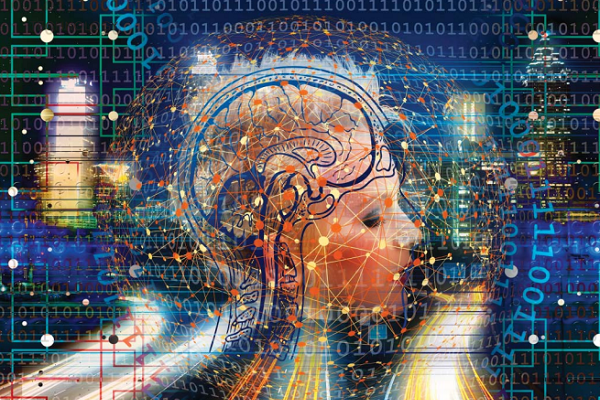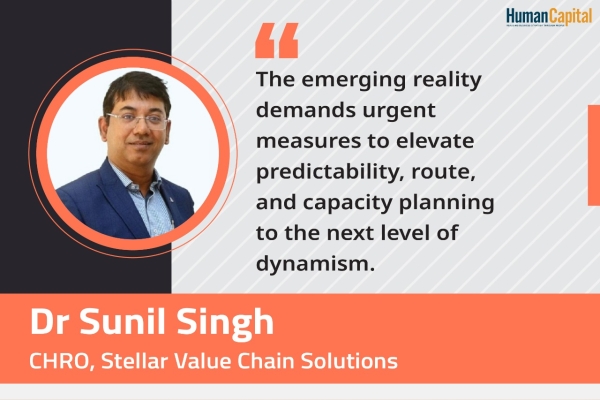The right cultural mix which can positively boost digital transformation needs a deeper examination. It is pertinent to explore how people can commit to growth and contribute to digital transformations.
Businesses today are in a state of constant flux and change. We are witnessing existing companies embracing new digital business models. In recent times, there has been a surge in the number of organisations that are born digital and many existing organisations that are transforming to be digital.
For organisations today, the need to be digital no longer remains a choice. Digitalisation is significantly impacting the work, the workplace, and the workforce, irrespective of their size, sector, and age. While organization are more than willing to extend their efforts and resources for digitalisation, several transformations have failed. Research and practice prove that less than one-third of change efforts succeed. The success rate of digital transformations is even lower.
In recent times, COVID-19 has propelled the adoption of digital technology on a quantum scale. The pandemic has completely transformed
• The way we do business
• Collaborate with people
• Connect with customers
Businesses have never witnessed such an effortless transformation with no apparent resistance from people. Huge capital investments are being pumped in to accelerate their digital journeys. However, it will not suffice to ensure a successful transformation.
People and culture are the most critical levers in digital transformation. Organisational culture is manifested in the way people, think, feel, and act. The right cultural mix which can positively boost digital transformation needs a deeper examination. It is pertinent to explore how people can commit to growth and contribute to digital transformations.
Carol Dweck’s study reflects that people with a Growth Mindset can significantly grow, surpassing even their natural talents. One surely believes that digital transformation can gain momentum in organisations that possess a growth mindset culture. Such a culture has the power to enable people to experiment, explore possibilities, and embrace new experiences required for digital transformations. A cultural framework of R.E.A.L - Resilience, Empathy, Accountability & Learnability is being proposed, which, in essence, are the real drivers of Digital Transformation.
Resilience
With a low success rate, the path of digital transformation may be chequered with trying times and failures. When organisations depart from the normal to embrace digital ways, people are pushed out of their comfort zones. While embarking on this path, people have to grapple with uncertainties. Also, they have to stretch their horizons to come up with new ideas, launch new products, and test new business models.
During the time of transformation, resilience enables employees to quickly recover from adversities and cope up with challenges. It is about bouncing back from failure; it is about learning from the mistakes and moving ahead. Having a resilient mindset provides employees with an appetite for risk and build muscle to withstand failure.
Resilience is built when leaders deal with setbacks and failures positively. A positive and psychologically safe environment, where employees freely express opinions enable them to find a sense of purpose and focus on the big picture to champion the digital transformation journey with ease. Leaders need to foster such a culture and build the organisation’s capacity to be more resilient to survive and thrive in the challenges of the present and the future.
Empathy
While thinking of digital transformation, the technology aspect tends to get overemphasised. However, it is the human that is at the centre of any transformation, including digital. It profoundly impacts the lives of all key stakeholders including employees and customers.
Empathy triggers a human-centric approach to innovation. It is key to designing customer-centric products and business models by keeping their preferences, motives, and values at the core. Likewise, understanding the employee psyche helps to overcome resistance during the implementation and transition associated with digital transformation.
Digital transformation is accompanied by disruptions of all kinds. Embracing a design thinking approach with sensitive change management practices can make the journey of transition less disruptive.
As CEO, Satya Nadella’s goal for Microsoft was to “empower every person and every organisation on the planet to achieve more.” Later, in his book “Hit Refresh”, he attributed empathy as the way to achieve that goal.
Empathy perpetuates a strong sense of social awareness and fosters collaboration. This serves as a strong foundation of trust and care which enables leaders to overcome employee resistance and provides a conducive environment for transformation.
Accountability
Digital transformation journeys may be driven by a few leaders, but they have to necessarily be owned by all employees. When there is a surge of new skills and competencies with an onslaught of digital journeys, employees should be committed to building the requisite capability through reskilling and upskilling. It should be their own journey of growth and joy rather than of fear and obsolescence.
Accountability literally translates to ownership and entrepreneurship across levels. One defines accountability as a function of alignment, capability, and empowerment.
Accountability = Alignment X Capability X Empowerment
Accountability comes when all the teams are aligned with a strategic vision. Strategies are formulated at the top and executed at all levels and passed on to the customers by the front-line employees in the form of product and services. There must be a common language that is spoken by everyone about the vision of the organisation pertaining to the digital agenda. At all times, leaders need to communicate the language that reaches the last mile. The common understanding of the strategic vision gives employees the reason to transform. They then vet their actions and decisions through the lens of strategic alignment.
Capability and alignment are best manifested when people are empowered to take decisions. With the sense of direction through strategic alignment coupled with skills to think, devise, and execute solutions, the entire organisation works in unison toward achieving transformation. Leaders feel confident in sharing the power and responsibility. I believe these forces work in synergy and conspire to make the organisation more agile in transformation journeys.
Learnability
One of the challenges of digital transformation is to keep the employees abreast with technological changes and know-how. Organisations that fail to keep pace with the changing demands perish. A culture of inquisitiveness and curiosity helps employees to look for opportunities to adopt new ways of thinking and working in the digital age.
A learning culture encourages people to take the uncharted path and explore. Employees look for opportunities to acquire, apply and share ideas and practices. This helps them to assimilate and evaluate facts and new information quickly with abstract reasoning. A continuous learning culture ushers the path of innovation and creativity needed for seamless customer experiences.
To foster a learning culture, leaders need to role model learning behaviours with a beginner’s mind. When learning interventions are designed keeping the learner’s experience at the centre, they take charge of their own development. Platforms for knowledge sharing accentuate social learning which is much needed in digital transformation. Incentivising learning and linking it with career progression or in some cases career track changes also help.
Digital transformation is not episodic but a continuous process. Organisations that successfully create an ecosystem integrating strategy, technology and culture will lead digital transformation successfully. Though often undermined, culture with R.E.A.L tenets is the most important driving force for any digital transformation.

Are you comfortable working with dispersed colleagues?
Trending
-
SBI General Insurance Launches Digital Health Campaign
-
CredR Rolls Out 'Life Happens' Leave For Its Employees
-
Meesho Announces 30-Week Gender-Neutral Parental Leave Policy
-
Microsoft Unveils Tech Resilience Curriculum To Foster An Inclusive Future
-
60% Indian Professionals Looking For Job Change Due To COVID: Survey
-
SpringPeople And Siemens Collaborate For Digital Transformation Push
-
86% Professionals Believe Hybrid Work Is Essential For Work Life Balance: Report
-
Almost 1 In Every 3 People's Personal Life Affected Due To Work Stress
-
Meesho Rolls Out Reset And Recharge Policy For Employees
-
80% Of Talent Leaders & Academics Say Pandemic Changed Skill Needs For Youth: Report
-
Hero Electric Rolls Out 'Hero Care' Program For Employees
-
Human Capital In Collaboration With ASSOCHAM Hosts Virtual Conference
-
IKEA India, Tata STRIVE Collaborate To Create Employability And Entrepreneurship Opportunities
-
SAP India, Microsoft Launch Tech Skilling Program for Young Women
-
DXC Technology, NASSCOM Collaborate For Employability Skills Program
-
Lenskart To Hire Over 2000 Employees Across India By 2022
-
Mindtree Launches Learn-and-Earn Program
-
Tata AIA Extends 'Raksha Ka Teeka' To Its Employees
-
Swadesh Behera Is The New CPO Of Titan
-
NetConnect Global Plans To Recruit 5000 Tech Professionals In India
-
Hubhopper Plans To Hire 60% Of Indian Podcasters By 2022
-
Corporate India Needs More Women In Leadership Roles: Report
-
Aon to Invest $30 Million and Create 10,000 Apprenticeships by 2030
-
Tech Mahindra Launches ‘Gift a Career’ Initiative for Upskilling of Youth
-
40% Women Prefer Flexible Working Options in Post-COVID World: Survey
-
3 out of 4 companies believe they can effectively hire employees virtually: Report
-
Vodafone , CGI and NASSCOM Foundation launch digital skills platform
-
Odisha: Bank, postal employees to deliver cash for elderly, differently-abled persons
-
Skill India launches AI-based digital platform for "Skilled Workforce"
-
Hiring activity declines 6.73% in first quarter: Survey
-
70% startups impacted by COVID-19 pandemic
-
Bajaj Allianz Life ropes in Santanu Banerjee as CHRO
-
Over 70 Percent MSMEs look at cutting jobs to sustain businesses
-
93 Per Cent employees stressed about returning to office post-lockdown
-
Johnson & Johnson India announces family benefits for same gender partners
-
Indian firms turning friendly towards working mothers
-
Welspun India names Rajendra Mehta as new CHRO
-
Wipro partners with NASSCOM to launch Future Skills platform



Human Capital is niche media organisation for HR and Corporate. Our aim is to create an outstanding user experience for all our clients, readers, employers and employees through inspiring, industry-leading content pieces in the form of case studies, analysis, expert reports, authored articles and blogs. We cover topics such as talent acquisition, learning and development, diversity and inclusion, leadership, compensation, recruitment and many more.
Subscribe Now












































Comment